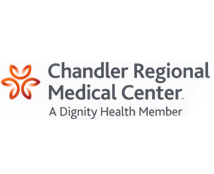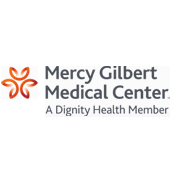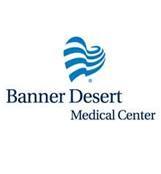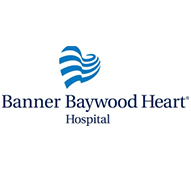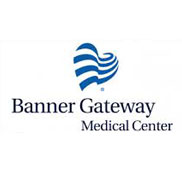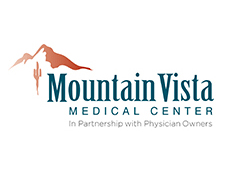Supraventricular Tachycardia
What is supraventricular tachycardia?
Supraventricular tachycardia produces a heartbeat that is regular or irregular and faster than usual. Typical heart rates range in the order of 150-250 beats per minute. This condition originates in the atria, the heart’s upper chambers.
What causes supraventricular tachycardia?
A variety of things can trigger supraventricular tachycardia. These include: alcohol, anxiety, caffeine, exercise, congenital (birth defects). Supraventricular tachycardia begins somewhere in the heart’s upper chambers, the atria.
One of the most common types of supraventricular tachycardia results in the heart’s electrical signals looping around in the AV node (an area between the upper and lower chambers) resulting in a fast heartbeat. In another type of supraventricular tachycardia there is an extra electrical pathway from the atria to the ventricles. Both conditions prevent the heart from beating normally.
Is supraventricular tachycardia dangerous?
Supraventricular tachycardia is not life-threatening most cases; however, if the heartbeat is excessively high or the ventricular tachycardia persists for more than just a few seconds, it may cause fainting (syncope), unconsciousness or cardiac arrest and death.
What are the common symptoms of supraventricular tachycardia?
Common symptoms of supraventricular tachycardia include rapid heartbeat, dizziness (losing consciousness may occur but usually not), shortness of breath, sweating, chest pain and anxiety. After an episode of supraventricular tachycardia, it is not unusual to feel very tired.
Who is at risk of supraventricular tachycardia?
Lifestyle choices can increase the risk of experiencing an episode of supraventricular tachycardia. These include overuse of alcohol, nicotine, caffeine, or use of illegal drugs, such as stimulants like methamphetamine or cocaine. Avoid decongestants which contain stimulants, including oxymetazoline (Afrin and other brands), as well as pseudoephedrine (Sudafed and other brands). Doctors also warn nonprescription diet pills or “pep” pills may increase the odds of supraventricular tachycardia occurring because many of these medicines contain caffeine, ephedrine, ephedra, the herb ma huang, and other stimulants.
Conditions that affect the lungs, such as heart failure, pneumonia, chronic obstructive pulmonary disease (COPD), and pulmonary embolism can raise your risk for atrial tachycardia, atrial fibrillation, and wolff-parkinson white syndrome which are all types of supraventricular tachycardia. Wolff-Parkinson-White syndrome is an inherited condition which can result in various kinds of supraventricular tachycardias. If you have parents or siblings with this disorder and they have symptoms, discuss with your doctor the possibility of your developing this abnormal heart rhythm.
If I believe I have supraventricular tachycardia, when should I call a doctor?
Call 911 or seek emergency medical care immediately if your heart is beating abnormally fast and you:
- have chest pain
- faint (syncope) or feel as though you are about to faint (I moved position of syncope)
- have a persistent fluttering sensation in your chest (palpitations) which either doesn’t go away quickly or is frequent
- have severe shortness of breath
- have symptoms of a heart attack or stroke
Call your doctor immediately if you have a pacemaker and you believe you have symptoms that suggest the device is not working properly. These symptoms may include: slow, fast, skipping or fluttering heartbeat; lightheadedness or fainting (syncope); dizziness; and shortness of breath that is getting worse or is new.
How is supraventricular tachycardia diagnosed?
It is crucial to diagnose supraventricular tachycardia correctly because the type of tachycardia you have determines the type of treatment you should receive. Supraventricular tachycardia can sometimes be diagnosed simply on the basis of a physical examination, medical history and a few simple tests.
Tests may be done to monitor your heart and diagnose the type of fast heart rate you have. Among these tests are: electrocardiogram (ECG,EKG) (delete to the electrical impulses in the heart); ambulatory electrocardiogram which utilizes a portable EKG to record your heart rhythm on a continuous basis, usually over a 24-hour period (also known as a holter or event monitor); an electrophysiology study where flexible tubes are inserted into a vein and threaded into the heart to transmit information about the heart’s electrical activity.
Catheter ablation can also be done while the electrophysiology study is under way in order to treat abnormal pathways and correct the supraventricular tachycardia. Certain medicines taken while you are experiencing a fast heart rate, and monitoring what happens, may sometimes help your doctor find out what type of fast heart rate problem you have.
Your doctor may do other tests once you have been diagnosed with supraventricular tachycardia to help identify its cause. These may include chest X-ray and/or pulmonary function tests to check for lung disease; blood tests to check thyroid function and electrolyte levels; and an echocardiogram to look at your heart.
How is supraventricular tachycardia treated?
There are three main options for people who have supraventricular tachycardia. When episodes of supraventricular tachycardia are not harmful, brief, infrequent, and not bothersome, certain patients choose, with their doctor’s advice, to forego any treatment. Alternatively, daily medication is available for those who wish to reduce the frequency and severity of their supraventricular tachycardia episodes. The third option utilizes radio-frequency to burn or “ablate” a small amount of heart tissue that is involved in producing the arrhythmia, thus curing the condition.






